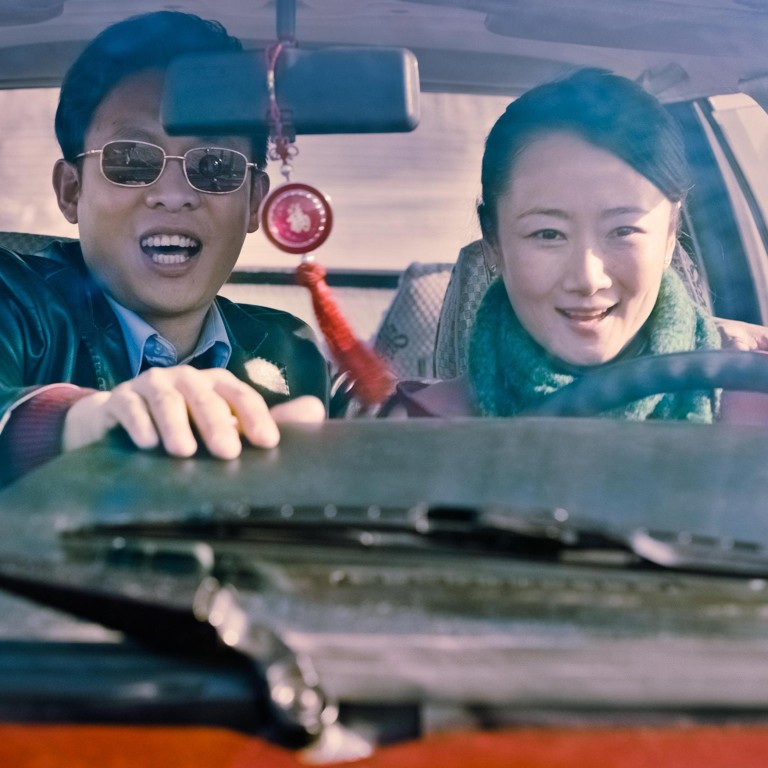
Live from Cannes: first look at Chinese Palme D'Or hope Mountains May Depart
Jia Zhangke's film, in running for top honour at French festival, is a sometimes stilted relationship drama and the director's least political film yet
In Mountains May Depart, Jia Zhangke has employed plenty of close-ups: of characters talking, arguing, crying, and a (clothed) couple locked in what should be a post-coital embrace - the latter a first for the Chinese director.
The film is essentially a relationship drama where the social ebbs and flows serve as mere signposts of the passage of time. In other words, this is Jia’s least political film, an irony – or perhaps a necessity – after the sharp-as-nails A Touch of Sin, which has yet to be released in his home market (and probably never will be) after its prize-winning bow at Cannes in 2013.
Mountains May Depart, which received its world premiere in competition at the Cannes Film Festival on May 20, comprises three sections screened in different aspect ratios and follows a group of characters across 26 years.
The film begins – in old-school Academy ratio – in 1999, as a group of fashionable young people celebrate the New Year in Fenyang – Jia’s birthplace and also the setting of most of his early films – by dancing to the Pet Shop Boys’ pumping take on the utopian ode Go West.
Leading the way is Tao (Zhao Tao), a talented performer and shopkeeper’s daughter who soon enough finds herself caught in a love triangle with her two best friends: the brash, moneyed brat Jinsheng (Zhang Yi) and the modest mine worker Liangzi (Liang Jingdong).
After a round of fisticuffs Liangzi concedes defeat and leaves town, vowing never to return. He does return, though; the second segment – set in 2014 – sees the labourer reappear in a vastly changed Fenyang, bringing with him his wife and child, and with his health in tatters.
Jia's screenplay is - for once - filled with vaguely philosophical musings founded on simplistic emotions and unveiled in stilted scenarios
Tao, an established and affluent businesswoman, has already divorced Jinsheng, with whom their son Daole – or “Dollar”, a nickname coined by his father – lives. Her dismay at the boy’s lack of attachment to home or his heritage leads to the final, widescreen Australia-set section, in which the by now grown-up and English-speaking Daole (Dong Zijang) is encouraged by his teacher-turned-lover (Sylvia Chang) to contend with his embittered and still monolingual father as well as confront his own issues.
What those issues are, however, are not exactly clear; Jia's screenplay is - for once - filled with vaguely philosophical musings founded on simplistic emotions and unveiled in stilted scenarios.
Jia has also tried too hard to make Mountains time-sensitive and topical: references to the disappearance of Malaysia Airlines flight MH370 and the anti-corruption campaigns initiated by Xi Jinping – who is not mentioned by name – are awkwardly grafted into the story and the dialogue.
Still, the film is not short of moments of hilarity and affect; an example of the former is the old Jinsheng’s outburst that shows his absurd notion of freedom (he’s outraged about being able to buy so many guns in Australia without having anyone he can legally shoot at); an example of the latter is the equally aged Tao re-enacting her youthful exuberance alone in the snow in the shadows of Fenyang’s ancient landmark – a scene which mirrors Zhao’s legendarily heartbreaking dancing-in-the-office scene in Platform.
For all its flaws, Mountains May Depart contains more than a glimmer of hope for Jia that he will arrive back where he started.

